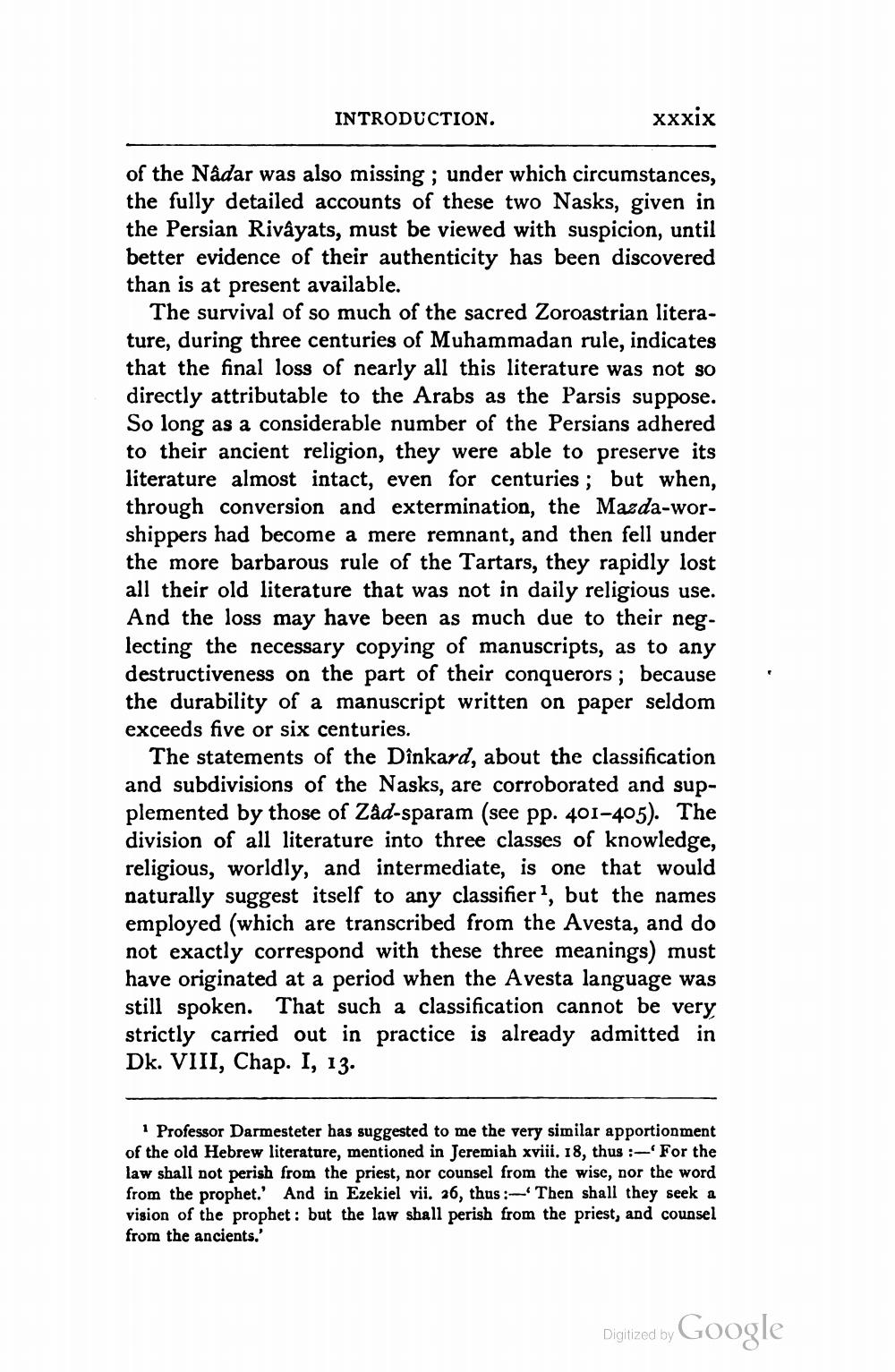________________
INTRODUCTION.
xxxix
of the Nadar was also missing ; under which circumstances, the fully detailed accounts of these two Nasks, given in the Persian Rivayats, must be viewed with suspicion, until better evidence of their authenticity has been discovered than is at present available.
The survival of so much of the sacred Zoroastrian literature, during three centuries of Muhammadan rule, indicates that the final loss of nearly all this literature was not so directly attributable to the Arabs as the Parsis suppose. So long as a considerable number of the Persians adhered to their ancient religion, they were able to preserve its literature almost intact, even for centuries, but when, through conversion and extermination, the Mazda-worshippers had become a mere remnant, and then fell under the more barbarous rule of the Tartars, they rapidly lost all their old literature that was not in daily religious use. And the loss may have been as much due to their neglecting the necessary copying of manuscripts, as to any destructiveness on the part of their conquerors; because the durability of a manuscript written on paper seldom exceeds five or six centuries.
The statements of the Dînkard, about the classification and subdivisions of the Nasks, are corroborated and supplemented by those of Zad-sparam (see pp. 401-405). The division of all literature into three classes of knowledge, religious, worldly, and intermediate, is one that would naturally suggest itself to any classifier", but the names employed (which are transcribed from the Avesta, and do not exactly correspond with these three meanings) must have originated at a period when the Avesta language was still spoken. That such a classification cannot be very strictly carried out in practice is already admitted in Dk. VIII, Chap. I, 13.
Professor Darmesteter has suggested to me the very similar apportionment of the old Hebrew literature, mentioned in Jeremiah xviii. 18, thus :-'For the law shall not perish from the priest, nor counsel from the wise, nor the word from the prophet.' And in Ezekiel vii. 26, thus:- Then shall they seek a vision of the prophet: but the law shall perish from the priest, and counsel from the ancients.'
the lawshi, a6, thus: com the wise.us
Digitized by Google




